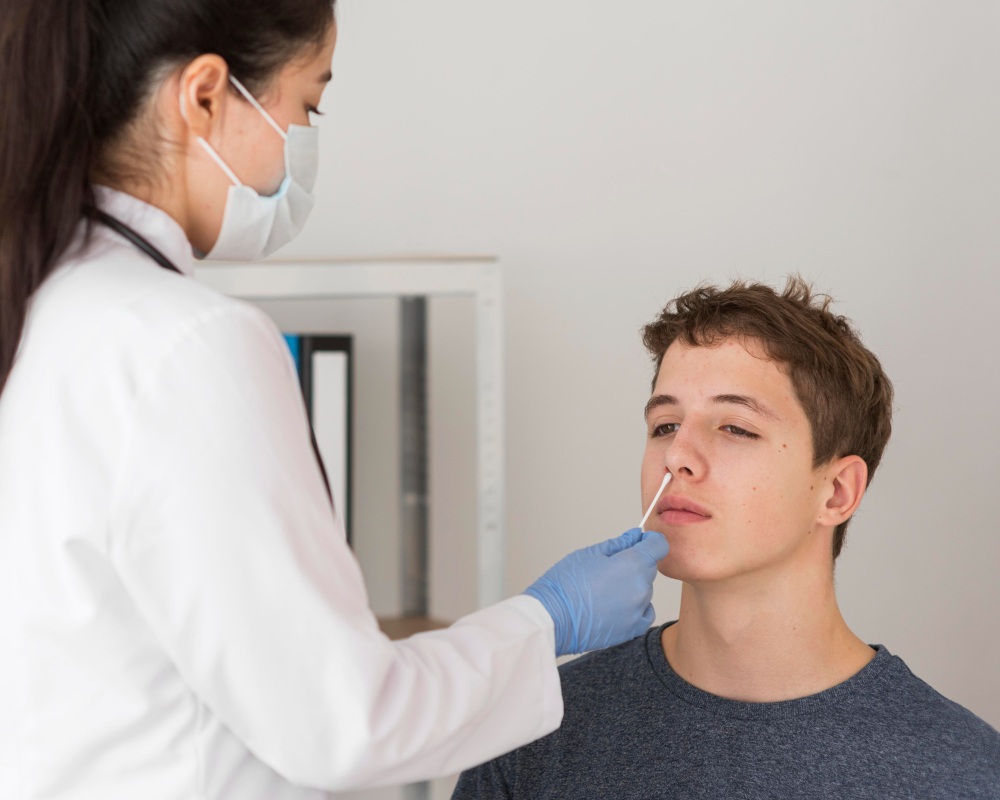Experts disagree on whether these persons should continue to isolate beyond ten days or only be taken care of until they test negative. For instance, a recent study that has not yet undergone peer review indicated that around 20% of individuals who underwent several tests throughout the omicron wave continued to test positive for Rapid covid test dallas 11 days after they first developed symptoms or initially tested positive.
Chan School of Public Health stated, “for certain folks, they’re seeing protracted episodes of being positive for monoclonal antibodies.” “I believe we may attribute it to variance in how each person’s immune system reacts to infection and their capacity to eradicate this virus.”
Even if they are still antigen-positive, some persons might not still be contagious after their treatment, while others might,” added Grad.
Researchers from Massachusetts General Hospital’s Amy Barczak’s team found that some persons tested positive even though they did not have viral cultures that indicated an infectious virus was present. This suggests that tests likely pick up residual viral traces rather than active viruses.
What to do if you’re Tests are Consistently Positive?
The latest Covid-19 isolation recommendations from the CDC state that individuals can cease their isolation after five days if they are fever-free and have improved in all other symptoms. However, if symptoms persist, it is advised that people isolate themselves until their symptoms go away and wear a mask for the remaining ten days.
Currently, the CDC does not demand that patients test negative before their isolation is ended. For those who do decide to self-test, the FDA advises isolating individuals who test positive until day ten while recommending that those who try negative continue wearing a mask until day 10.
However, there isn’t a specific agreement on whether people should keep isolated beyond ten days if their tests are still positive.
Resuming Regular Activities
You may have breathlessness or fatigue while you recover from COVID-19. This often happens after being ill. As you resume your regular activities, you should be cautious. Make sure to pace yourself and get enough rest, eat well, and rest as necessary.
If you contact a contaminated object or surface and subsequently touch your mouth, nose, or eyes, you might also become sick, though this is less common. However, its thin outer layer makes it simple to kill by thorough washing and disinfection.
The virus is more likely to be discovered on surfaces if there has recently been a confirmed incidence of COVID-19 inside. Clean and sanitize all exposed surfaces.
28 days or less had Passed After the Last Illness
If you experience COVID-19 symptoms again and it has been 28 days or less since your last infection (either since you tested positive or when you first experienced symptoms), and you meet the following criteria:
- You are low risk, so you don’t need to take another test
- If you experience COVID-19-like symptoms that are worsening or have an underlying medical problem, you should consult a doctor for help.
29 Days or More have passed since an Illness
Take a RAT if it has been at least 29 days since your previous infection and you are experiencing COVID-19 symptoms. If it’s positive, you must isolate yourself and adhere to the exact instructions for your initial illness.
Lengthy COVID
The symptoms that persist or change after the first COVID-19 symptoms are referred to as Long COVID. This generally occurs when a person has been infected for more than 12 weeks.
Most COVID-19 patients fully recover within 12 weeks, and most recover entirely between 2 to 6 weeks. Some individuals do; however, report experiencing a variety of symptoms after the typical recuperation period.
These symptoms might include exhaustion, dyspnea; cough; sore throat; chest tightness, cognitive impairment, “brain fog”; trouble sleeping; pins and needles; dizziness; joint pain; and muscular discomfort. Consult your doctor or the medical staff for assistance in managing and treating extended COVID.
When do I, as a Recovered Case, must take a COVID-19 Test?
Suppose you experience new respiratory symptoms during the preceding 12 weeks and meet the requirements for those more likely to experience severe illness. If the test results for COVID-19 are positive, therapy may be provided; thus, some people may need to be retested.
Even if your COVID-19 test returned negative, you should avoid leaving the house until you feel better.
What should I do if the Infection hasn’t subsided?
Most COVID-19 patients fully recover in a matter of weeks. The following symptoms are more likely to persist over a few weeks: weariness, chest pain, and cough.
Additionally, specific symptoms might last longer than a few weeks. A headache, a runny nose, joint discomfort, difficulty sleeping or eating, sweating, and diarrhea are a few of these symptoms.
Your age, general health, and the intensity of your COVID-19 symptoms will all affect how quickly you recover. Please consult your GP or go for Monoclonal antibody treatment dallas or other healthcare providers if you have concerns about persistent symptoms after receiving an ACT Health clearance to leave isolation.






